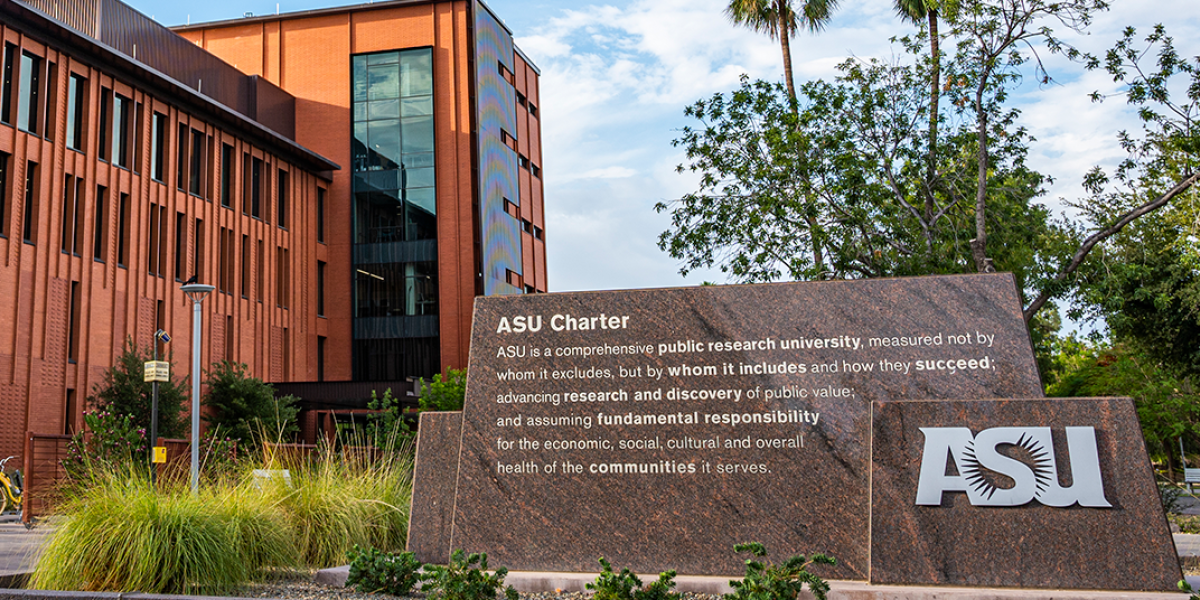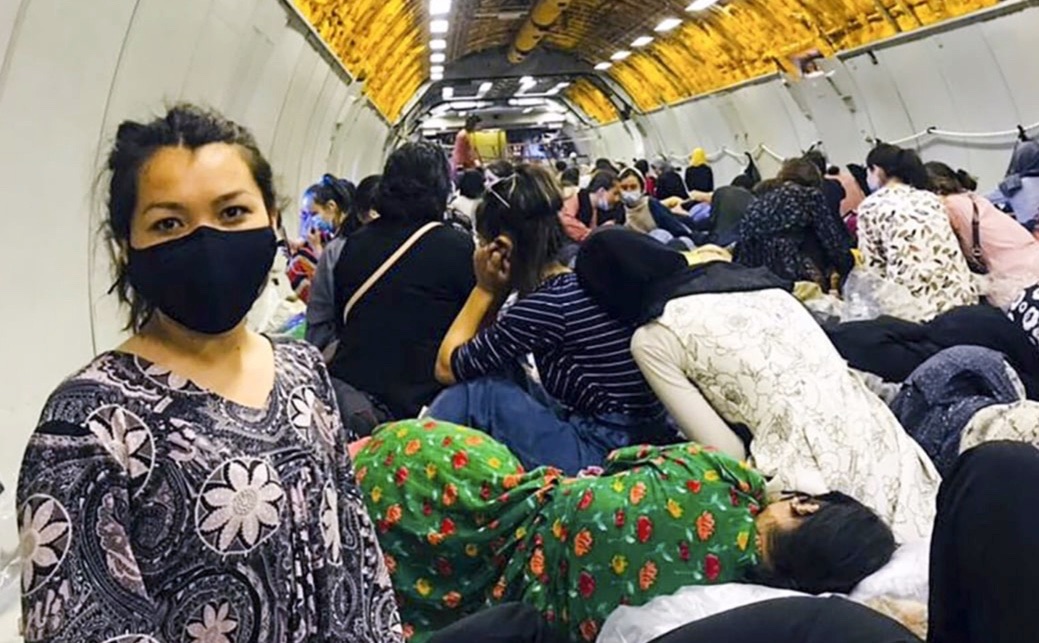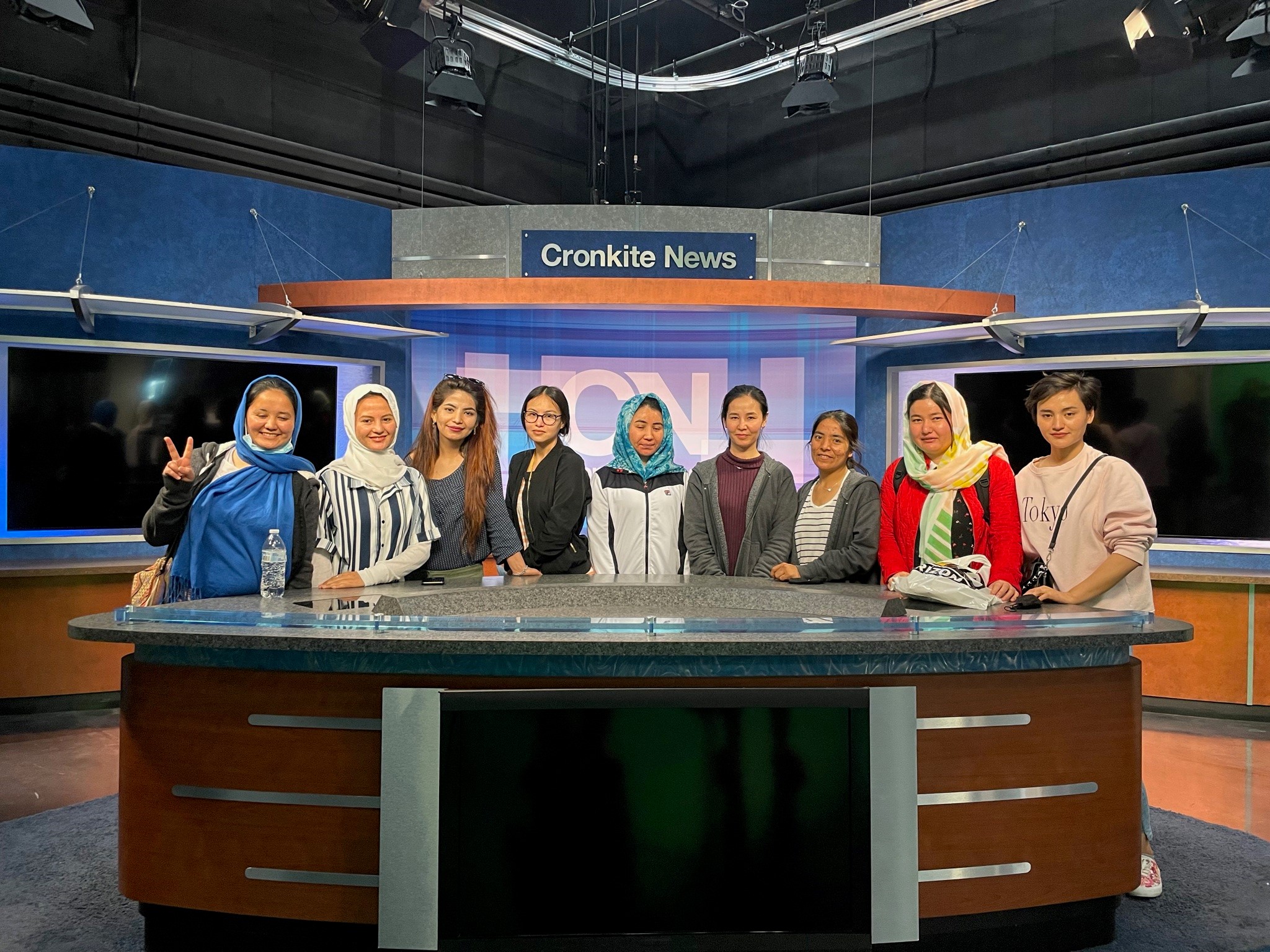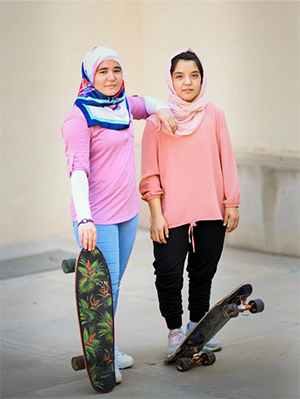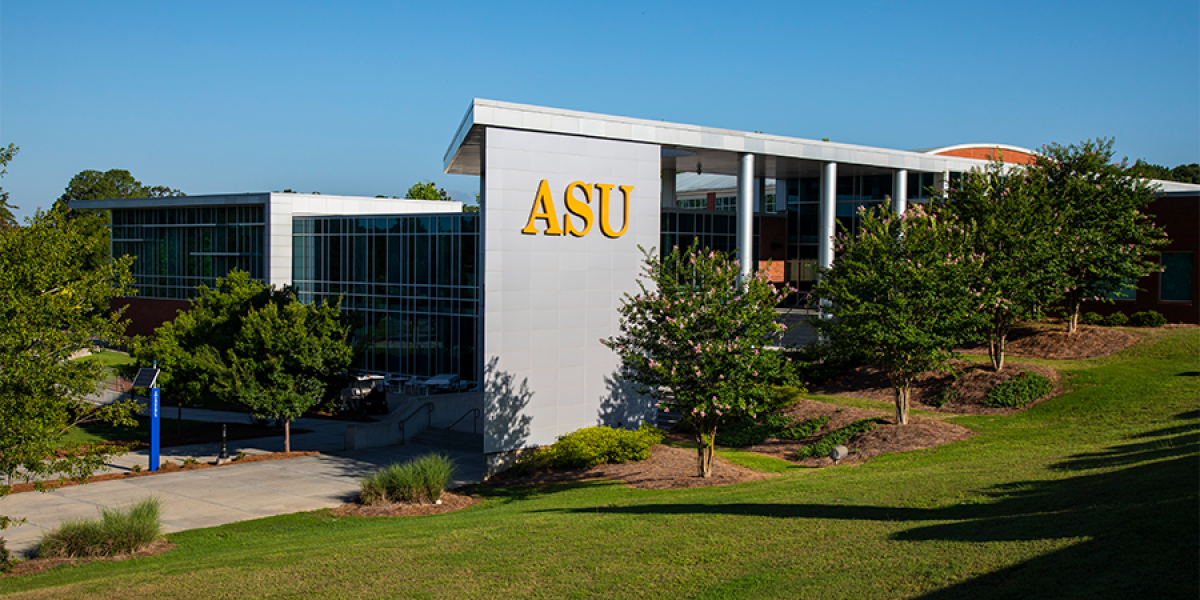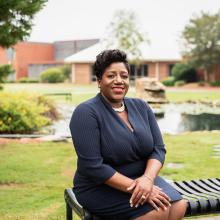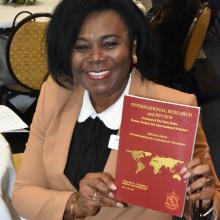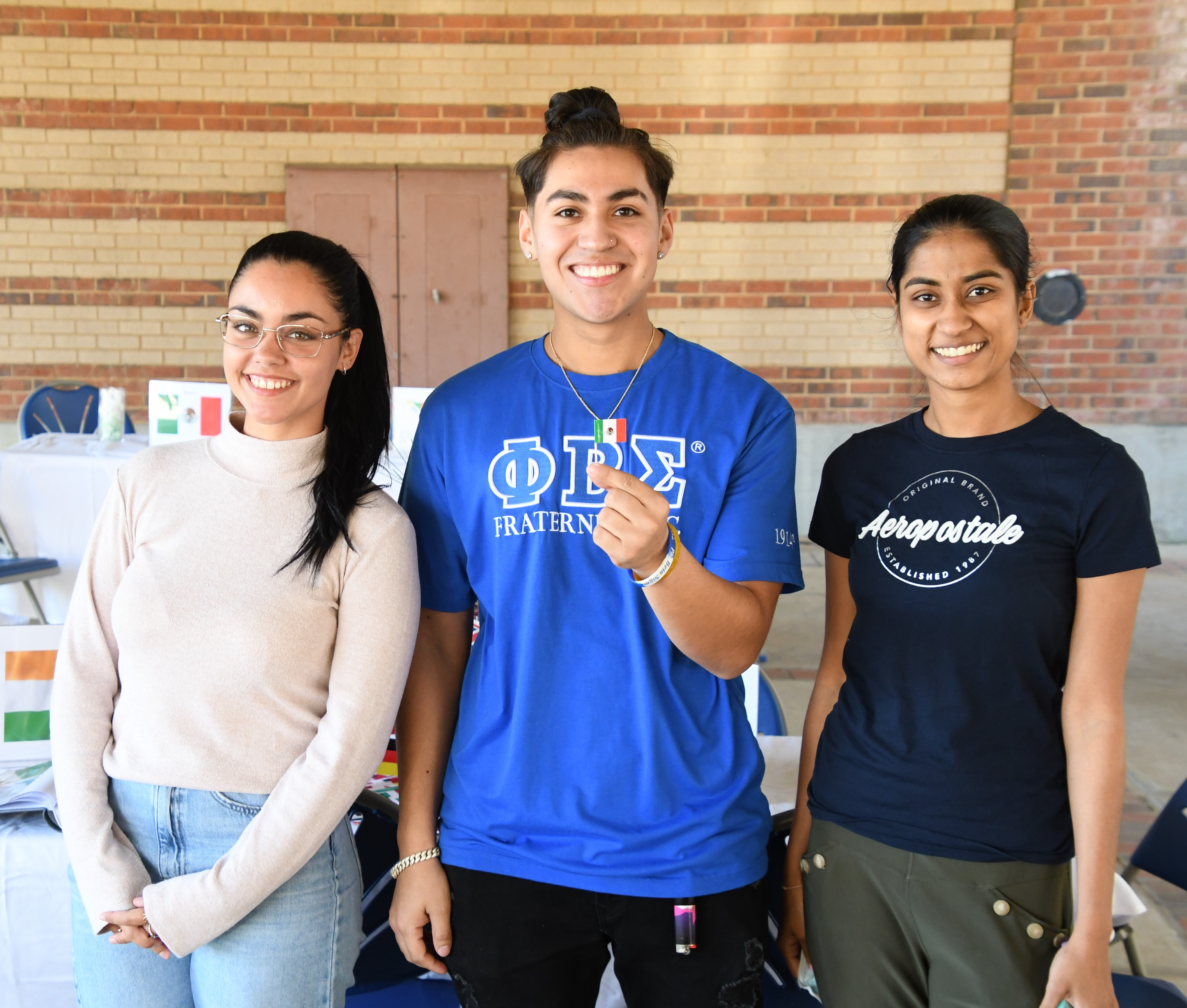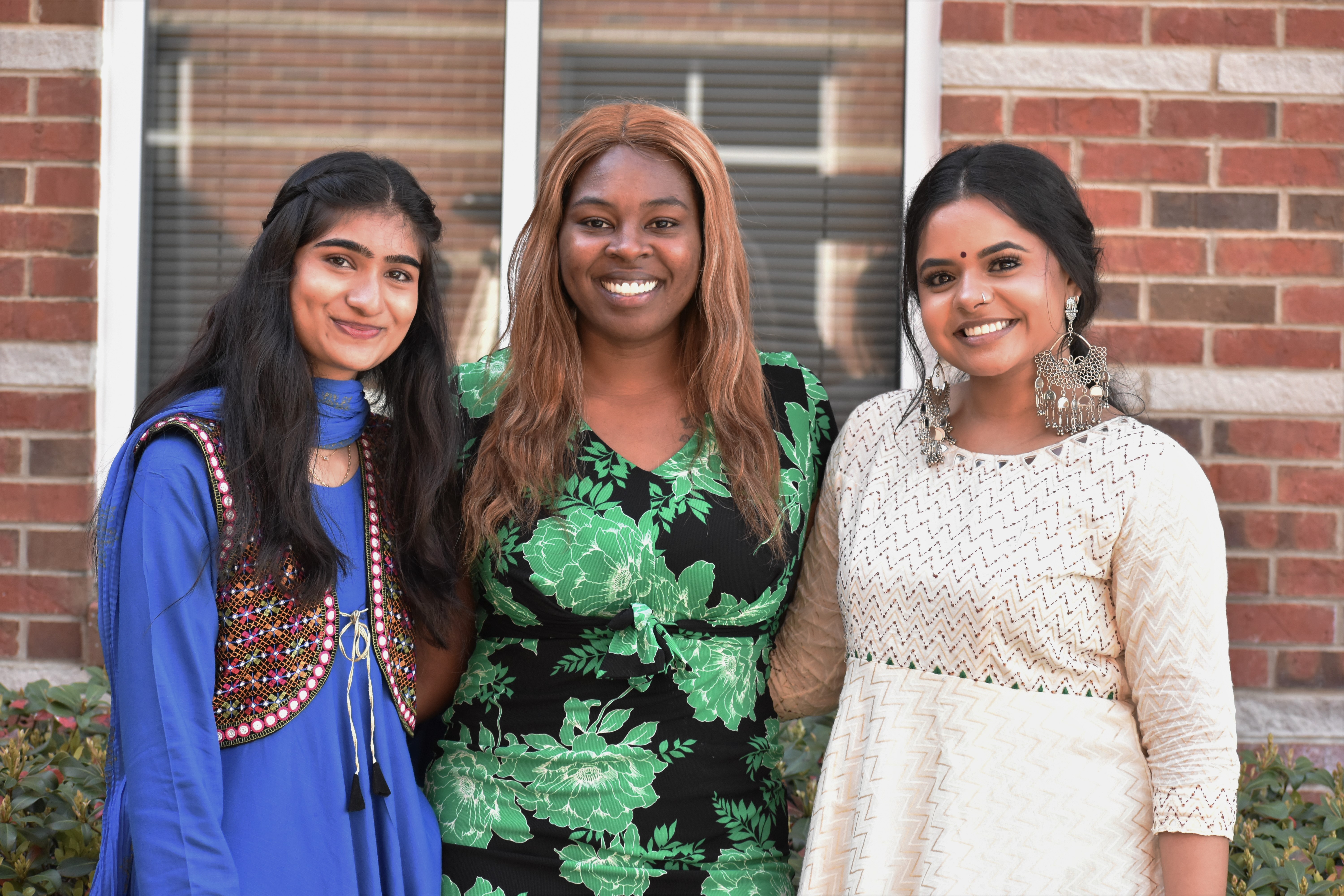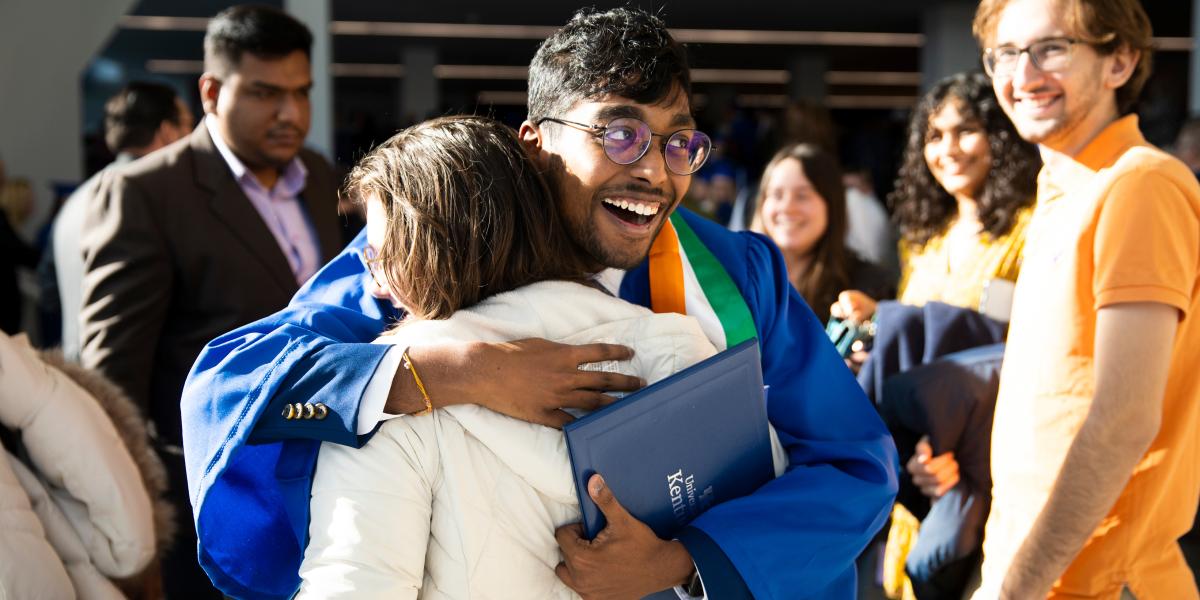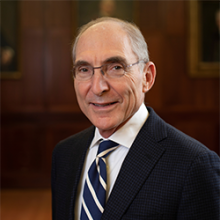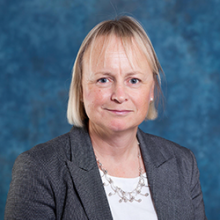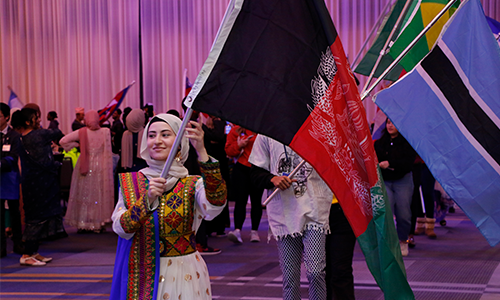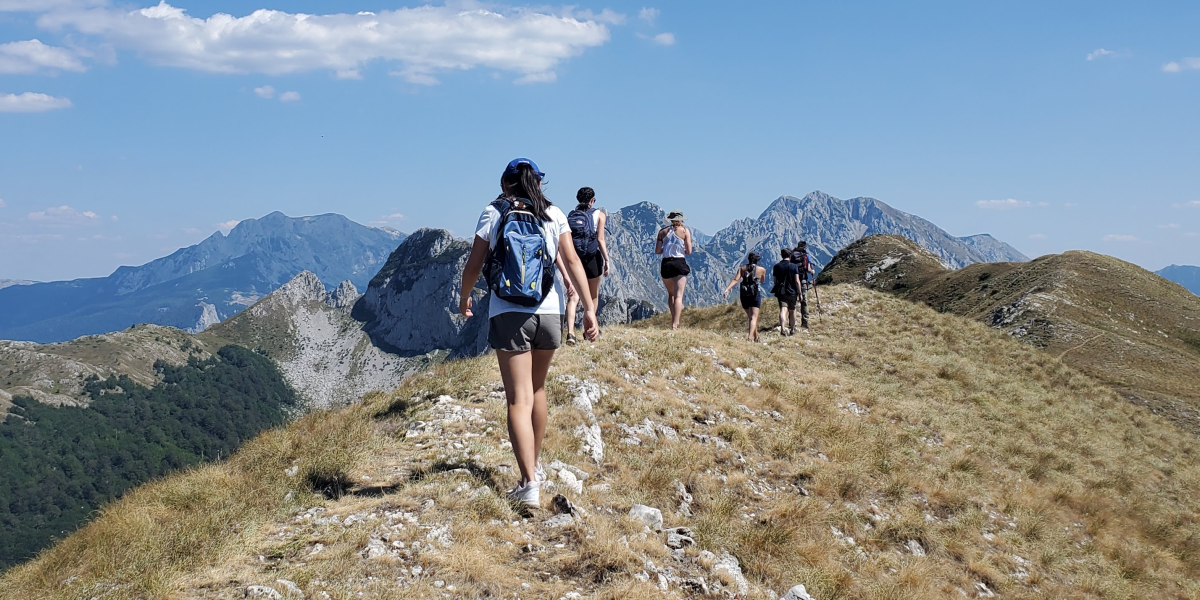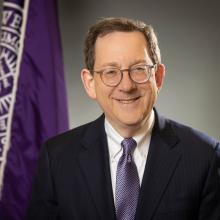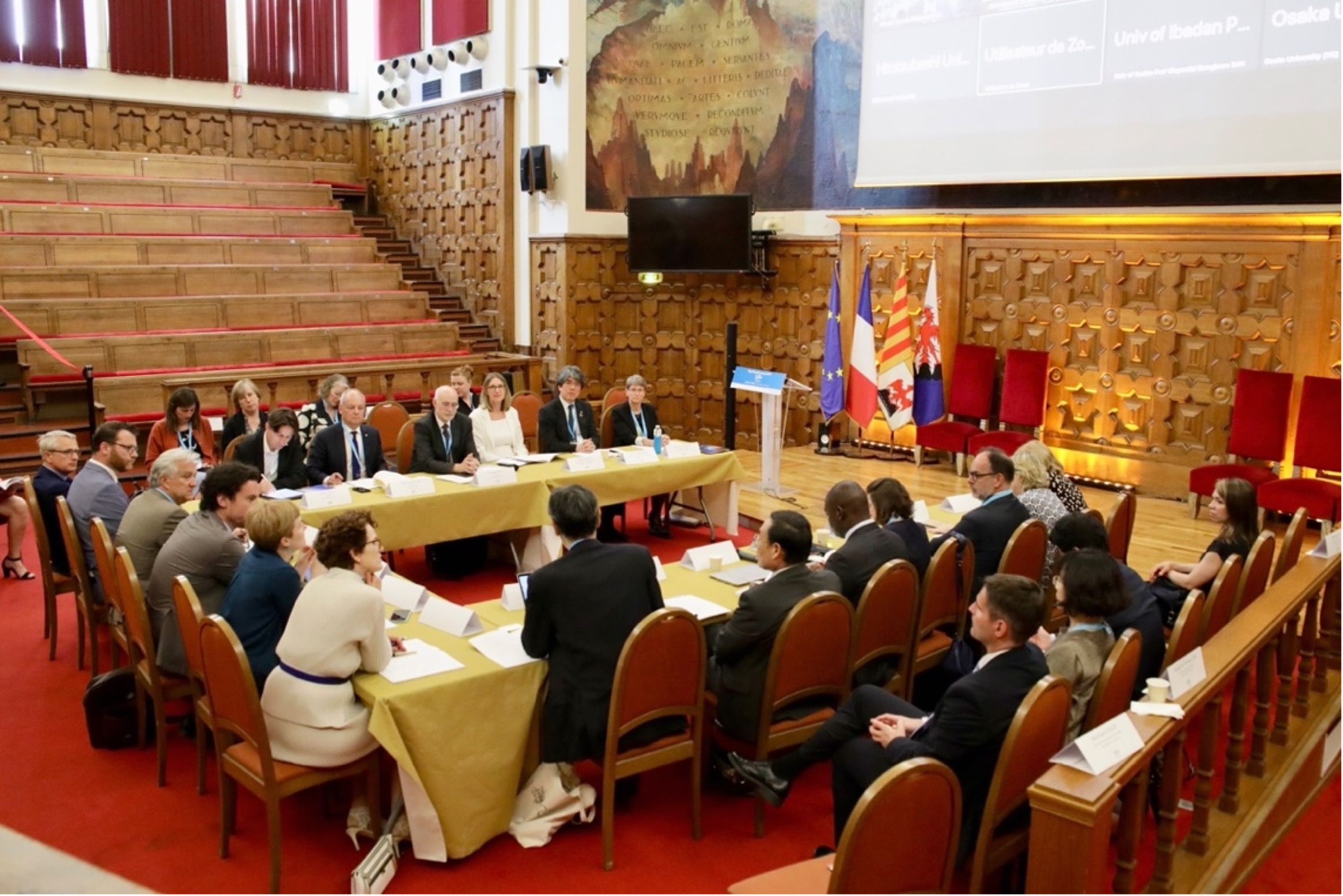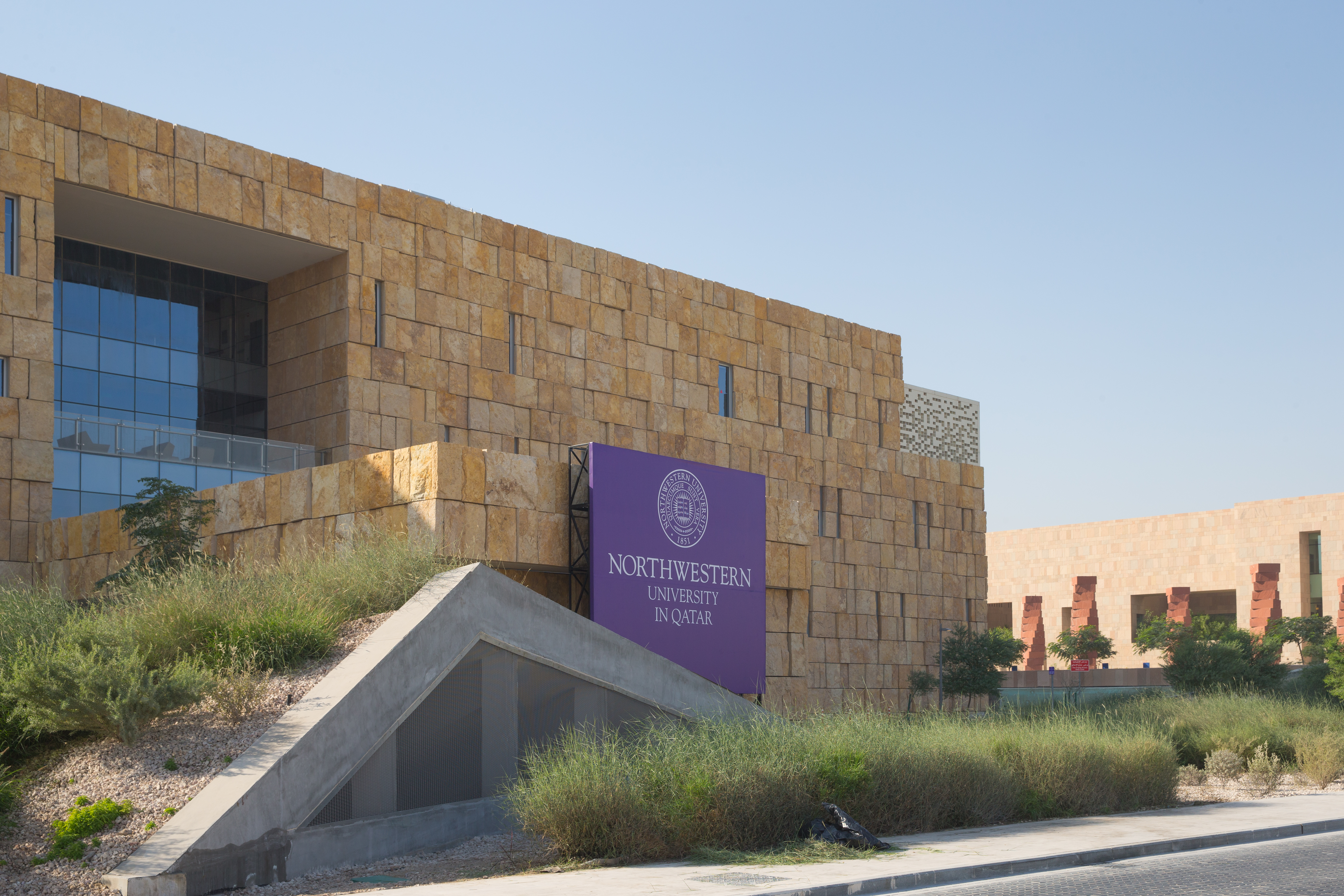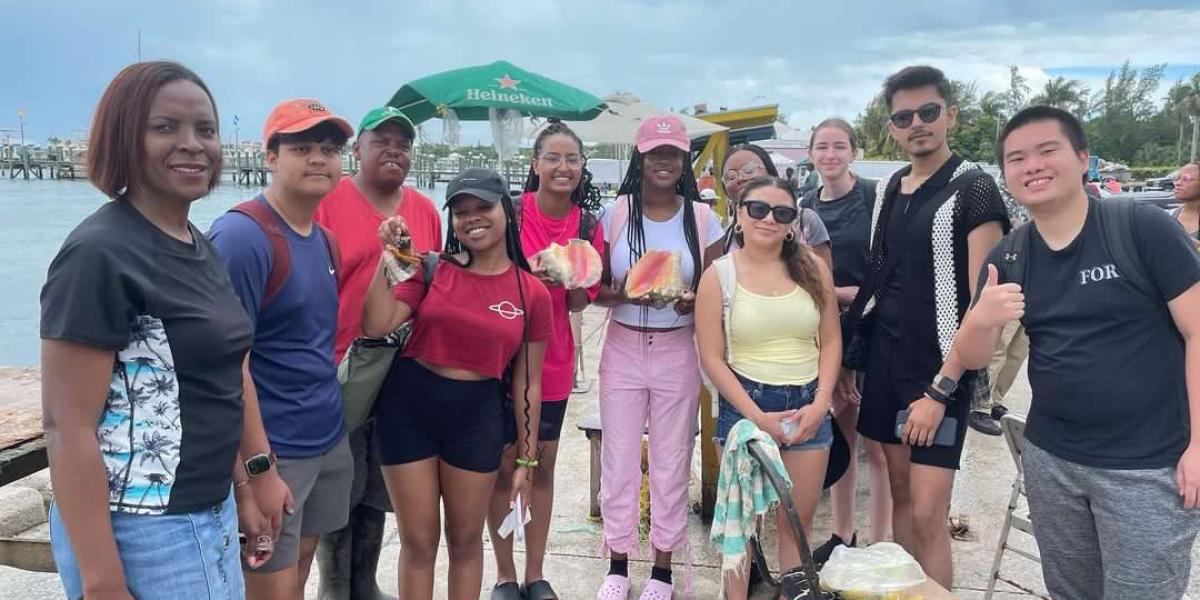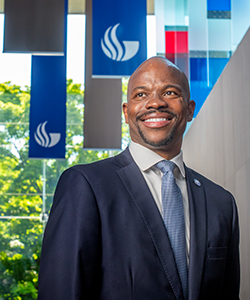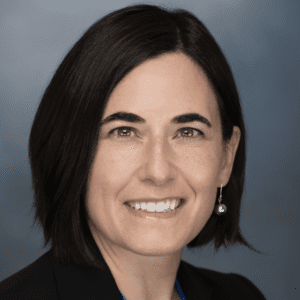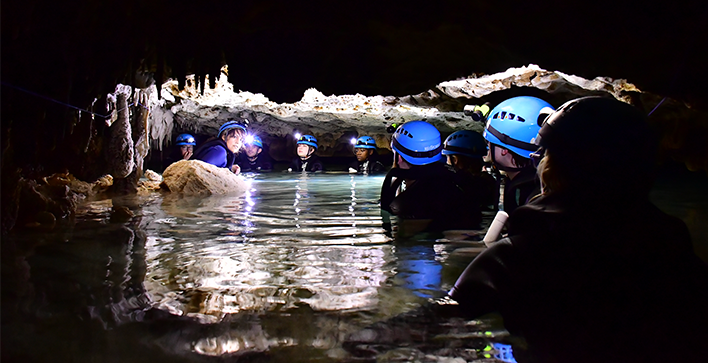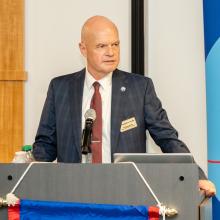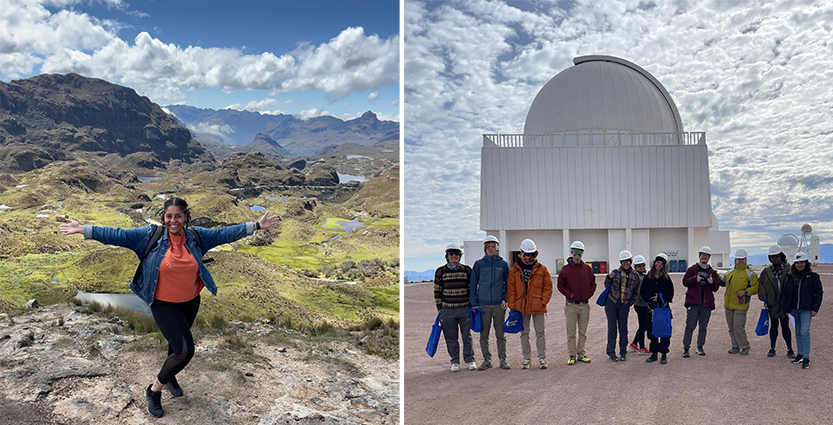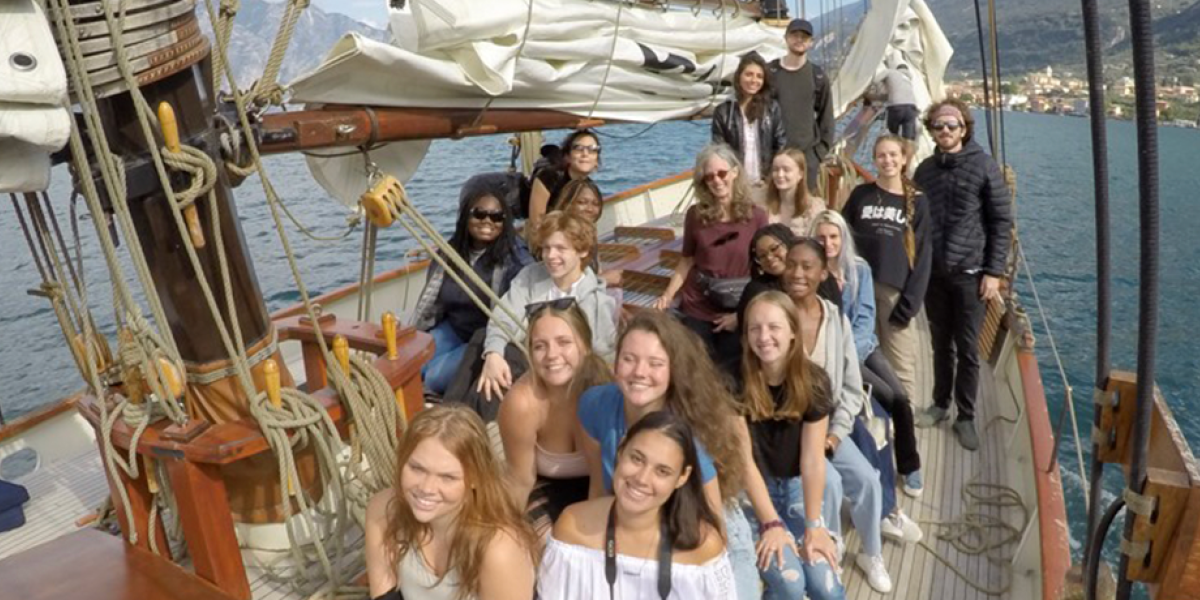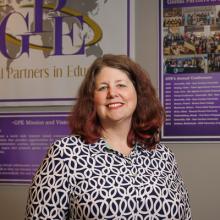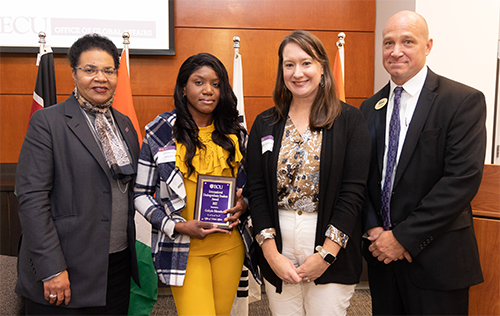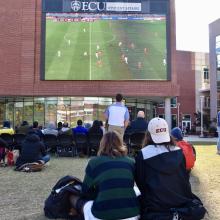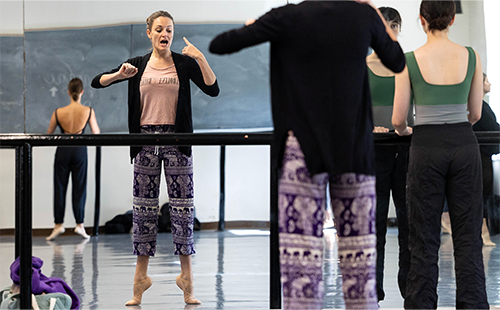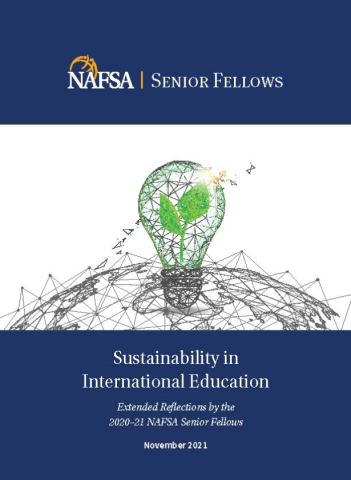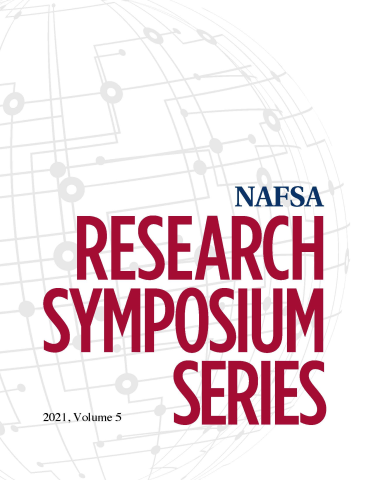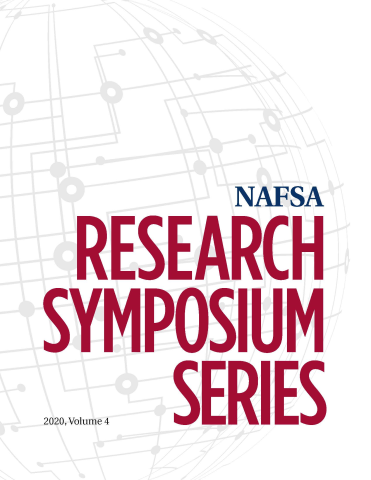2023 Spotlight Arizona State University
Located in Tempe, Arizona, Arizona State University (ASU) is a public research university with more than 125,000 students. Through its Education for Humanity (E4H) program, the university has been supporting refugees by offering online courses with support from community partners abroad for the last six years. In partnership with the resettlement organization the International Rescue Committee (IRC), ASU created the Afghan Women’s Education Project in 2021 to host refugee students on campus for the first time as part of a campuswide initiative.
When Zakia Muhammadi fled Afghanistan two years ago, it was just the start of her journey. She had been a student at the Asian University for Women (AUW) in Chittagong, Bangladesh, until the COVID-19 pandemic forced the college to temporarily close and she had to return to Afghanistan. When the United States pulled its troops out of Afghanistan in summer 2021, the Taliban quickly took over the country.
Muhammadi was one of 148 AUW students who fled Afghanistan by a plane from Kabul, traveling to Saudi Arabia, then Spain, Virginia, and, finally, Wisconsin, where they were among 13,000 Afghan refugees being processed for resettlement at U.S. Army Fort McCoy. After arriving to Wisconsin, Muhammadi wasn’t sure if or when she’d be able to continue her education. So it was unexpected but welcome news when she found out she had been admitted to Arizona State University. “To be honest, we didn't have any idea that we would get a scholarship,” she says.
Muhammadi was one of 64 young Afghan women who had previously been at the AUW who were able to enroll at ASU. The group arrived in Tempe in December 2021. ASU officially cosponsored the students alongside the International Rescue Committee (IRC) and a local organization, Welcome to America. Arizona State also partnered with local nongovernmental organizations and volunteer groups, which donated clothing and household goods. Brown University, Cornell University, the University of Delaware, DePaul University, Georgia State University, the University of North Texas, the University of Wisconsin-Milwaukee, and the University of West Virginia enrolled the other AUW refugee students.
ASU was able to host the largest group of Afghan students because ASU President Michael Crow supported the Afghan Women’s Education Project from its inception, says Pamela DeLargy, executive director of the Education for Humanity (E4H) program and a professor of practice in global studies. Crow’s early support also helped mobilize the rest of the campus community.
Creating Local and National Partnerships
“This was the first cosponsorship between a higher education institution and a resettlement agency,” DeLargy says. “We worked for many months ahead of time to coordinate how we were going to handle things like health care and getting Social Security numbers.”
ASU was well positioned to develop the Afghan Women's Education Project, building on the work the university had already been doing through E4H. Since 2017, the program has supported more than 5,700 learners in 15 countries, mainly in Africa and the Middle East. Previously, E4H focused primarily on serving refugees abroad by offering blended learning opportunities in collaboration with partners such as the United Nations’ refugee agency—UNHCR—and the Norwegian Refugee Council.
Two years prior to the arrival of the Afghan students in 2021, ASU launched a concerted effort to make its campuses more “refugee friendly.” This effort grew out of the desire to better serve the resettled refugee communities in Arizona and to sensitize a wider community of ASU faculty, staff, and students about forced migration and the educational challenges faced by refugees.
ASU had also started working with resettlement agencies during the pandemic when the university began offering online English classes to local refugee communities. The university reached out to the IRC about cosponsoring the Afghan students when it knew they were coming to campus.
“We already had some experience with trying to think about what kind of special services needed to be arranged for those coming from this background,” DeLargy says. “This was kind of a shock to the system, but [it] also helped us in many ways to build out the system so we can be more supportive of those others who are coming. We had Ukrainian students who were already at ASU who became refugees. We also have large Congolese, Sudanese, Somali, Iraqi, and Syrian communities in Phoenix.”
Hosting refugee students is different from serving the general international student population, DeLargy says. “The difference is that the students are with us 24/7, 365 days a year,” she says. “Most universities have moved away from in loco parentis status. But with this population of students, you actually become responsible if somebody gets hurt or sick. They don't have parents or family in the country.” The university becomes the students’ local support system, she adds.
Mobilizing Campuswide Resources
To bring the Afghan students to campus, ASU mobilized a university-wide set of resources and, in some cases, changed institutional policies and procedures to provide full-time and full-year care for the students. ASU's Global Launch program provided intensive English courses, social support, and cultural orientation throughout their introduction to the United States. “We got the chance to explore more about the university and learn about the system here,” Muhammadi says.
Admission procedures were adapted to handle the lack of transcripts and other documentation. Special housing considerations were put in place to ensure access to kitchens so that students could prepare their own meals, especially during Ramadan, since cafeterias are not accessible before dawn or after dusk.
Because of the unique needs of trauma-affected refugees, ASU Counseling Services engaged in targeted outreach and employed a Dari-speaking counselor. Faculty and staff, including resident assistants in the dorms, were also trained to provide trauma-informed instruction and include more culturally sensitive support. ASU's Project Humanities worked with an Honors College student who conducted participatory research on refugee mental health needs and analyzed campus resources to aid these efforts. “We all have a need to talk about these traumas we went through, because we didn't have normal lives for six months,” Muhammadi says. “When we went to counseling, there were some people who could not share their feelings in their second language.”
ASU also had a number of student organizations that were already working with refugee communities in various capacities and so were equipped to jump into supporting the new students. In addition, the incoming students revived the Afghan Student Association, which has hosted a number of well-attended educational and social events on campus. “These have raised awareness of the current Afghan situation and also of the challenges of Afghans awaiting regularization of their immigration status,” DeLargy says.
ASU also increased its involvement with local and national groups focusing on refugee education and employment. ASU now serves as a partner to Arizona resettlement programs and has engaged in a multifaceted national research collaboration with the IRC. The university is also an active participant in the Presidents' Alliance on Higher Education and Immigration, Welcome Corps on Campus, and Every Campus a Refuge, all of which are groups of universities that share lessons they have learned hosting refugee students.
DeLargy recommends that higher education institutions that host refugee students work closely with resettlement agencies and their state arm of the Office of Refugee Resettlement because they have expertise in all the processes that refugees need to go through to complete necessary federal and state registrations and be eligible for various benefits.
Student Success
Rezayee skateboarding in Arizona. Photo
courtesy of Nisha Datt, IRC.
As of October 2022, seven of the refugee students were enrolled in graduate programs at ASU and 42 in undergraduate programs. In January 2023, another 18 had completed their English studies and moved onto their degree programs. As for Muhammadi, the move to Arizona gave her the opportunity to realize a childhood dream she had long given up on. “This is not the first time I'm a refugee,” she says. “I'm originally from Afghanistan, but I grew up in Pakistan as a refugee. And there, I didn't have an opportunity to get an education.”
She was thankful to eventually receive a scholarship to the AUW, where she studied politics, philosophy, and economics because her preferred major was unavailable. “It was my childhood dream to be a computer scientist,” she says. Now she’s taking prerequisites to double major in politics and computer science. She’s also doing an internship at a tech company, and she gives credit to ASU for her new path. “Because of all the support, they gave me this confidence to be who I am now,” she says.
